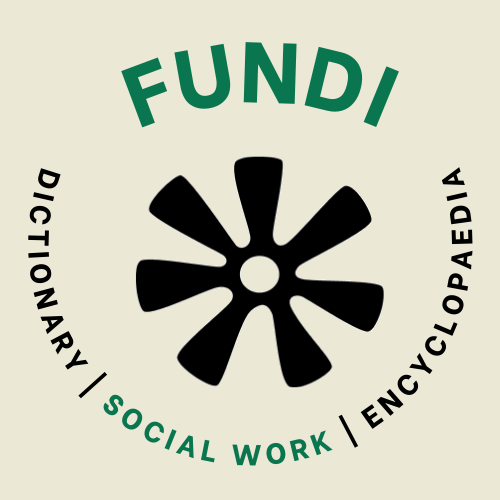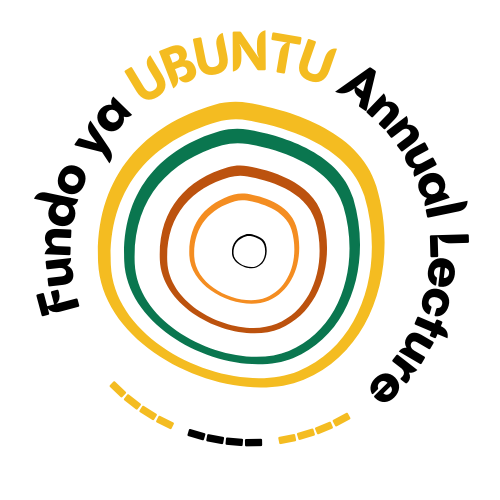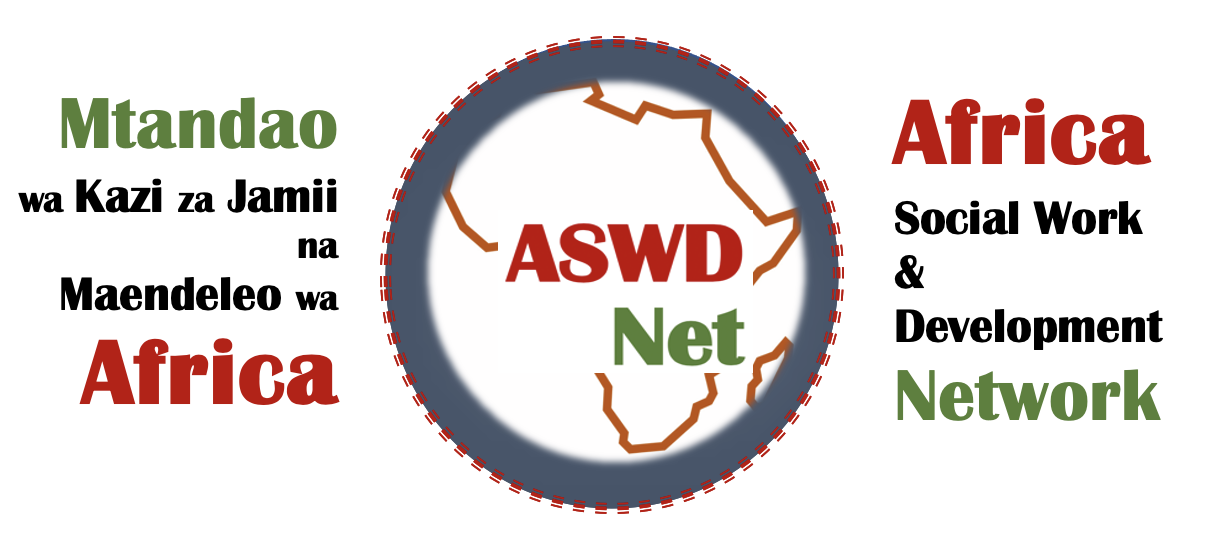
Fundi – The African Dictionary and Encyclopaedia of Social Work and Development
Fundi Version 2.0

Welcome to Fundi.
Also see Uwongo, a list of words that communicate falsehoods or misconceptions about African social work or Africa people and Africa in general. Uwongo means false, untrue, biased or demeaning of African values and ways of life. Unless otherwise indicated, cite information from this dictionary as follows:
Africa Social Work and Development Network (ASWDNet), (2021). Fundi: The African Dictionary and Encyclopaedia of Social Work and Development. Harare, ASWDNet.
Instructions: To view a term, go to the alphabet, look for the term, hover over it or click.
- AAEM
- Acculturation
- Action Research
- Adinkrahene
- Adinkrahene
- Africa
- Africa attire
- Africa-centred
- African
- African-centred or Afrocentric research
- 'African descent'
- African diaspora
- African Dream
- Africanism
- Africanist
- African renaissance
- African research methodology (ARM)
- African social work
- Afrikology
- Afriture
- Afrocentrist
- Ageing
- Ahmed Ben Bella
- Aid
- Akhenaten
- Akoma
- Amílcar Cabral
- Ananse ntontan
- Ananse ntontan
- André Matsoua
- Art
- Asante
- Asase Ye Duru
- Assimilation
- Ayampatapo
- Ayika
- Ba
- Babekazi
- Baliano
- Bantu
- Bato
- Bese Saka
- Biako ye
- Black people
- Boa me na me mmoa wo
- Bomoto
- Bulamu
- Buluggin ibn Ziri
- Case management
- Casework
- Casework Child/children
- Chama
- Changamire Dombo
- Charwe Nehanda
- Charwe Nehanda
- Cheikh Anta Diop
- Chief Theresa Kachindamoto
- Child
- Child labour
- Chinua Achebe
- Cleopatra VII
- Clients:
- Collaborative approach
- Collective
- Collective research approach
- Collectivism
- Colonial
- Colonising current
- Communal
- Community
- Community analysis
- Community-based
- Community-centred approach
- Community-determination
- Community development
- Community development organisation (CDO)
- Community-led
- Community projects
- Community social work
- Community work
- Communiversity
- Content analysis
- Continental social work
- Country
- Creative approaches
- Critical thinking
- Critical thinking
- Cultural safety approach (CSA)
- Culturation
- Culture
- Dakaro
- Dambiro
- Dandaro
- Dare
- Dariro
- Dashuro
- Data analysis
- Decolonial
- Decolonial Approach (DA)
- Decoloniality
- Decolonisation
- Decolonised Interviewing
- Decolonised Literature Approach (DLA)
- Decolonising
- Decolonising current
- Decolonising Literature Review (DLR)
- Deculturation
- Dedan Kimathi
- Denkyem
- Developed community
- Development
- Developmental:
- Developmental approach
- Developmental research (DR)
- Developmental social services
- Developmental social work
- Dialogue Approach
- Dihya (Kahina)
- Disability
- Disorders of sex development (DSD)
- Duafe
- Ecological social work
- Edward Mutesa II
- Electronic or computer-aided analysis
- Empowering
- Empowerment
- Empowerment or capability research approach
- Entrepreneur
- Environment
- Environmental
- Environmental approach
- Environmental approach
- Environmental social work
- Ethic
- Ethical
- Ethical research
- Experiential method
- Experimental approaches
- False conservation
- Family
- Family analysis
- Family-determination
- Family-determination
- Family father
- Family mother
- Fatma Emam Sakory
- Fawohodie
- Fela Kuti
- Fieldwork
- Fihankra
- Framework
- Framework analysis
- Framework gender
- Frantz Fanon
- Fufu
- Fundi
- Funtunfunafu
- Gamal Abdel Nasser
- Gender
- Gerontology
- Gimuntu
- Girmamawa
- Global North
- Global social work
- Global South
- Griot approach
- Griot approach
- Group analysis
- Group social work
- Growth-oriented project
- Gye Nyame
- Hadza
- Haile Selassie I
- Harmful female genital rituals (HFGR)
- HFGR
- Homehold
- Houari Boumédiène
- Household, Family or Community Oriented Research (HOFACOR)
- Human drainage
- Hunhu, unhu, botho or ubuntu
- Hwemudua
- Ibrahim Index of African Governance (IIAG)
- Idi Amin
- Imbeleko model
- Impairment
- Imperialism
- Imvelo
- Income
- Indaba
- Indigenisation
- Indigenised
- Indigenising
- Indigenous
- Indigenous research methodology (IRM)
- Individualism
- Individualistic
- Individual social work
- Insider research method
- In-situ primary analysis
- Institutionalisation
- Institutionalisation
- Integral musha
- Intergenerational
- International
- International social work
- Itorero
- Jaha Dukureh
- JJ Roberts
- John Mbiti
- Jomo Kenyatta
- Joshua Nkomo
- Julius Nyerere
- Justice
- Kagisano (Swahili)
- Kaleb of Axum
- Kandake Amanirenas
- Karma
- Kebele
- Khoi
- Kijitoa
- King Nkanga Mvika
- Kiondo concept
- Kujitoa
- Kurutsa
- Kush
- Kushava
- Kushusha
- Kuumba (mentoring)
- Kuumba Method
- Kuumbana
- Kuumba: (Swahili; Shona, Zimbabwe)
- Kwame Nkrumah
- Land
- Land reform
- Laurent-Désiré Kabila
- Livelihoods
- Local Ethics Approach (LEA)
- Local language approach (LLA)
- Longitudinal analysis
- Lungu
- Maaya
- Made in Africa Evaluation (MAE) approach
- Madiba syndrome
- Mansa Musa
- Manual analysis
- Marcus Garvey
- Marriage
- Masarwa
- Massinissa
- Mate Masie
- MAU MAU
- Medemer
- Menelik II
- Methods for research utilisation
- Methods of data discussion
- Mitumba
- Mixed approaches
- Mixed Methods
- Modibo Keïta
- Mtoto
- Mukando
- Multiculturation
- Munyai
- Munyai approach
- Musha
- Muthu
- Mutoro
- Mutunchi, iwa or agwa
- Muzungu
- Mzee
- Mzima/phelele
- Na banye
- Nana Yaa Asantewaa
- Nana Yaa Asantewaa
- Narrative approach
- National social work
- Nelson Mandela
- Nguni languages
- Nhaka
- Nhakanomy
- Nile-Sahara people
- Non-Communicable Conditions
- Non-verbal consent (NVC)
- Notes
- Nyame Dua
- Nyatsimba Mutota
- Nyika
- Obafemi Awolowo
- Obuntu
- Okinka Pampa Kayimpa
- Older persons
- Omoluwabi or Omoluabi
- Omundu
- Ooni Luwo Gbagida
- Orature
- Orature Approach (OA)
- Orature review
- Owia Kokroko
- Pan-Africanist
- Participant analysis
- Participation
- Participatory Action Research (PAR)
- Patrice Lumumba
- 'People of colour'
- 'Person of Colour'
- Philosophy
- Policy
- Postcolonial
- Poverty
- Practice-based
- Prayer method
- Primary analysis
- Process analysis
- Proverbs
- Pula
- Queen Nzinga
- Race
- Racism
- Re-analysis
- Recolonising current
- Reflection
- Refugee
- Refugee journey
- Regional social work
- Relational-collective-timed approach (RTCA) of data analysis
- Relational research approach or paradigm
- Religion
- Researcher analysis
- Research process
- Reserve land (reserves)
- Responsibility
- Responsible research approach (RRA)
- Reviere’s African-centred procedure of achieving ‘validity’ or ‘reliability’
- Rifa
- Rights
- Robert Mugabe
- Roora
- Rural
- Sam Nujoma
- Samora Machel
- Samori Touré
- Sandawe
- Sankofa
- Sankofa methodology
- Scared places and spaces approach
- Secondary analysis
- Self-praise or self-poetry or praise poetry
- Seretse Khama
- Seva
- Shaka Zulu
- Shosholoza
- Shosholoza
- Side-by-side analysis approach
- Side-by-side approach or collaborative research
- Simunye
- Sobhuza II
- Social capital
- Social development
- Social enterprise
- Social exclusion
- Social Media Reactions (Sentiments) Approach
- Social work
- Social work interventions
- Social work practice
- Socio-economic
- Socio-economic development
- Spiritual
- Spiritual analysis
- Stanlake Samkange
- Steve Biko
- Stokvel
- Stories Approach
- Stories research approach (
- Story method of analysis
- Sundiata Keita
- Tarajio Hasara (Disadvantage Expectations Theory)
- Tariq ibn Ziyad
- Task method
- Thabo Mbeki
- Thematic analysis
- Theory
- Theory-building approach
- The San Method
- The San Method
- The total agreement technique (TTAT)
- Thomas Sankara
- Thutmose III
- Toto
- Tree of Life Approach
- Trimurti
- uAfrica or huAfrica
- uAfrica religion
- Ubudehe
- Ubudehe
- Ubumwe
- Ubuntu-informed
- Ubuntuist
- Ubuntu justice
- Ubuntu (noun)
- Ubuntu or botho
- Ubuntu (philosophy)
- Ubuntu research approach (URA)
- Ubuntu social work
- Ubunyarwanda
- Ubutwari
- Ugali (fufu)
- Uhaki
- Uhuru
- Ujamaa
- Ujamaa
- Ujamii
- Ujima - (Swahili)
- Ukama
- Ukuru
- Ukweli
- Umachobane
- Umhuri
- Umoja
- Umuco/isiko
- Umuganda
- Umuganda
- Umunthu or ubuntu
- Unethical
- Unyanzvi
- Urban
- Urithi
- Uroho
- Ururami: (Shona, Zimbabwe), Ubulungiswa(Nguni), Ubutabera (Kinyarwanda, Rwanda)
- Usawa
- Usawa
- Ushavi
- Usman dan Fodio
- Utlulivu
- Utu, munto or mondo
- Utungamiri (Shona)
- Utu, obuntu or bumuntu
- Uwongo
- Valentin-Yves Mudimbe
- Value
- Value
- Vazungu
- Vazungu
- Vene
- Village
- Village social work
- Visual Methods
- Vumuntu
- Walks method
- Wangari Maathai
- Watoto
- Wazawa
- W. E. B. Du Bois
- Welfare
- Western
- Whiteness
- Woreda
- Work party research
- Yusuf ibn Tashfin
- Zunde
- Zunde raMambo
- Zunde raMambo
- Zungu




These cookies allows you to comment on posts and pages.